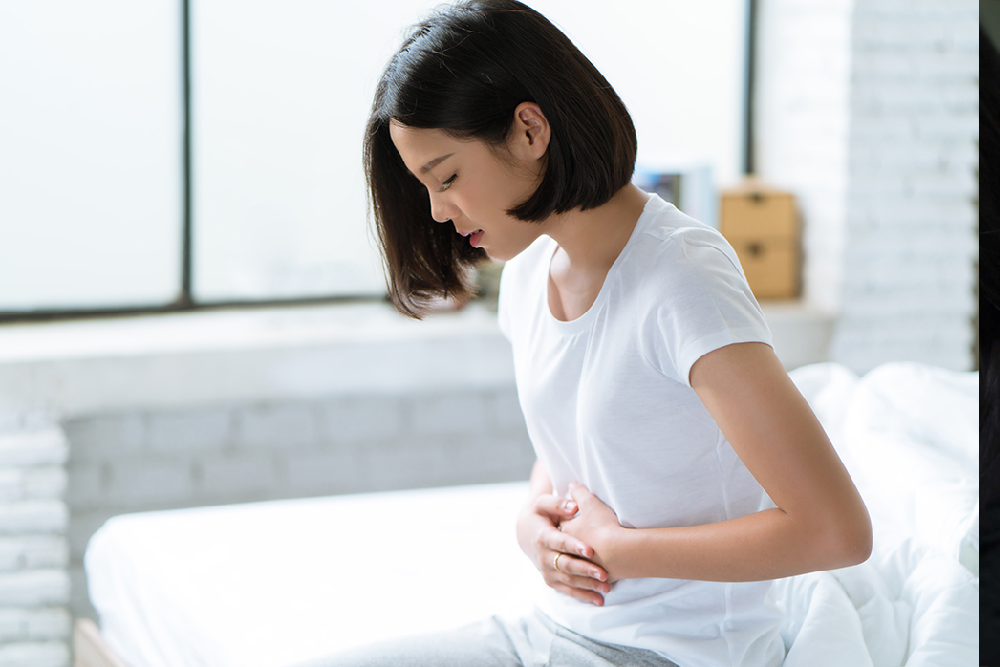
Deepthi stepped away from the mirror. She was embarrassed and disappointed. She could not understand why she had developed so much acne on her face, and lost so much hair in such a short time. “How will I ever go to college looking like this? What will my friends say?” she wondered.
What Deepthi did not realize was that the acne and hair loss were just symptoms of a deeper, underlying issue – PCOS.
WHAT IS PCOS?
Polycystic ovarian syndrome or PCOS has become a common health issue experienced by adolescent girls and young woman in recent times. In a study in India, the prevalence rate of this syndrome in 15- to 19-year-olds was found to be 22.6%. In other words, around 1 in 5 girls or young women experience PCOS.
The exact cause of PCOS is unknown. However, factors such as poor dietary choices, an imbalance in thyroid hormones, increased stress, vitamin D deficiency, overweight, physical inactivity, infectious agents and toxins can cause PCOS. This results in numerous cysts being formed in the ovaries, and generation of high levels of male hormones (androgen). In rare cases, it may even cause insulin resistance, thereby leading to diabetes.
PCOS can be effectively managed if diagnosed early. These are the symptoms you should look out for:
One of the major symptoms is irregular periods. The average menstrual cycle is 28 days but anywhere between 21 and 35 days is considered normal. The hypothalamus in the brain is responsible for the production of following important hormones for reproduction and menstruation: Gonadotropin releasing hormone (GnRH), Leutinizing hormone (rupture of ovaries and egg release), Estrogen (primary female sexual hormone), Progesterone (female hormone for implantation of fertilized egg) and Testosterone (male sex hormone).
Though testosterone is a male sex hormone, it is produced in the ovaries in small amounts to stabilize the mood, sexual drive and energy levels. If a woman has PCOS, the testosterone levels in her body increase and contribute to negative health effects. Most women with PCOS have unpredictable menstrual cycles with infrequent periods (more than 35 days between periods) or no periods at all (amenorrhea). They may also suffer from heavy menstrual flow (more than 6 full pads or tampons per day) during their period cycle.
HOW CAN I DEAL WITH PCOS?
PCOS is not a cause for alarm! With the right steps, you can manage the condition effectively and live a regular life.
Exercise: Try simple exercises like yoga, light aerobics, and swimming. Just keep your body working by doing basic exercise on a regular basis. Walk for 30 minutes a day, at least 5 days a week, to control insulin resistance.
Eat healthy food: Add healthy proteins and fat to your diet. Start including some leafy greens as they are a good source of nutrients. Avoid eating fatty products and eliminate caffeine (coffee and aerated drinks like Coke).
Stay hydrated: Drink plenty of water to flush out toxins and to stay hydrated. It helps in balancing pH levels in the body, which helps with abdominal bloating.
Sleep well: Getting good, deep sleep can help you feel better and refreshed. It can also help in your efforts to reduce weight.
Keep track of your periods: Keep a thorough track of your menstrual cycle to ensure you notice irregularities in your period cycles.
CAN I GET PREGNANT IF I HAVE PCOS?
Medically speaking, we would categorise women with PCOS (and above the age of 21) into four categories: Mild, Moderate, Severe, and Resistant.
Women in the Mild category tend to get their period every 40 days or so. They usually do not experience difficulty in conceiving, and do not require intensive fertility treatment. Women in the Moderate and Severe categories tend to be on the heavier side, and would have to first adopt lifestyle changes to bring down their weight. They may also have to take some hormone supplements. Those in the Severe bracket may be advised to undergo some form of fertility therapy. For women in the Resistant category, IVF is regarded as the best route for pregnancy.
Having PCOS will not stop you from becoming a mother. There are medically sound options to help you fulfil your parenting dream.
At Bloom Hospital, we are committed to helping you live a healthy and happy life. If you have concerns about PCOS or fertility issues, contact us or book an appointment now.
For Booking Please Contact :
044- 4000 0009 / +91 72 999 111 07
info@bloomhealthcare.in